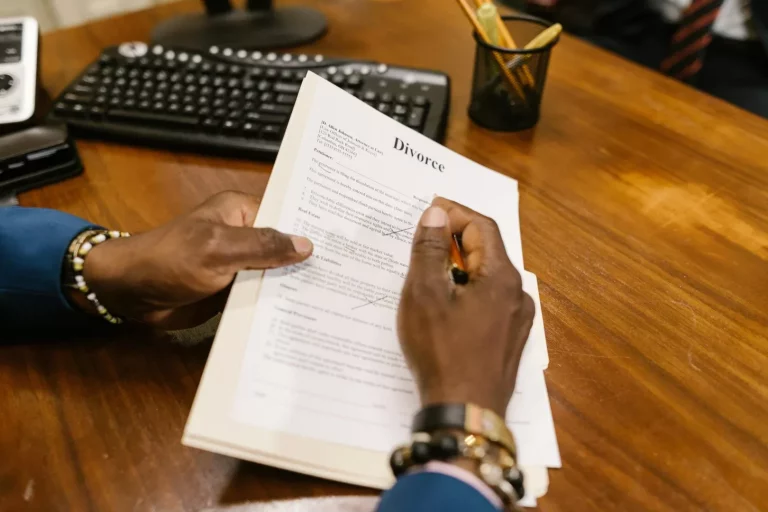Divorce Trauma – Overview and Effects
Ever wondered about the emotional toll of divorce? At TheBostonDivorceLawyer, we understand the trauma that comes with ending a marriage. Learn how to navigate these difficult feelings and move forward with our expert advice.
Divorce can cause trauma in children due to feelings of abandonment and confusion. This trauma can manifest in various ways, such as behavioral issues and difficulties forming relationships. Seeking therapy and support can help children cope with the emotional impact of divorce.
Causes of divorce
A common reason for problems in a relationship is poor communication. When partners don’t talk about their feelings or needs, they can grow distant and resentful over time.
Cheating is another major cause of divorce trauma. When one partner is unfaithful, it breaks trust and causes deep hurt.
Money problems can also lead to divorce. Financial stress often leads to arguments and tension in the marriage.
Basically, differences in personality and values might make it hard for partners to get along or solve conflicts, which can also push a marriage to its breaking point.
Substance abuse or addiction adds more strain to the relationship due to unpredictable behavior and lack of stability.
Lastly, constant arguing and not resolving conflicts can weaken the emotional bond between partners, eventually leading to the end of the marriage.
Each of these issues can cause a lot of emotional pain for those going through the difficult process of divorce.
Emotional impact
Divorce can bring up feelings of sadness, anger, and fear. People might feel heartbroken or lonely after a divorce. Some might also feel guilty or like they have failed. The stress of a divorce can lead to anxiety and depression. People dealing with a divorce might have trouble sleeping or eating. They may also feel like they’ve lost a part of themselves or have lower self-esteem.
Honestly, divorce can create a lot of uncertainty and be very overwhelming. It can be hard to get used to a new life after being with someone for a long time. Some people might struggle to trust others or start new relationships.
Financial challenges
When a couple decides to separate, they may face challenges like splitting assets, paying off debts, and managing daily expenses on one income. This can be especially hard for those who relied on their spouse for money.
After a divorce, adjusting to a new budget and lifestyle can be stressful. Legal costs, child support, and alimony can add more financial pressure. Maintaining the same standard of living as before may be difficult.
So to speak, sometimes, one partner may need to find a new job or work more hours to cover their expenses. This is tough, especially if they didn’t earn the main income during the marriage. Handling taxes, insurance, and investments alone can also be confusing.
The emotional impact of divorce can affect one’s financial decisions. Stress, anxiety, and depression might make it hard to focus on managing money. Seeking help from a therapist or financial advisor can be important during this tough time.
Coping strategies
When it happens, it’s normal to feel sad, angry, or confused. This is called divorce trauma.
One way to manage divorce trauma is by talking about your feelings with someone you trust, like a friend, family member, or therapist. Sharing your feelings helps you from bottling them up inside.
Another way to cope is by looking after yourself. This means eating healthy, getting enough sleep, and exercising. Taking care of your body helps you handle the tough emotions that come with divorce trauma.
It seems that, finding ways to relax can also help. You might enjoy reading a book, going for a walk, or listening to music. Doing things you like can give you a break from the stress of divorce trauma.
Be patient with yourself during this hard time. Healing from divorce trauma takes time, and it’s okay to feel different emotions. By talking about your feelings, taking care of yourself, and finding ways to relax, you can start to heal in a healthy way.
Support system
Going through a divorce can be really tough, but having support makes it easier. This support can come from family, friends, or even professionals like therapists and counselors. They can listen, offer comfort, and help you deal with the complicated emotions that come with a divorce.
Support can show up in many ways. It could be someone to cry with, someone to talk to, or someone who helps with everyday tasks. It’s important to be around people who are kind and understanding during this tough time.
To be fair, a support system can also help you make important decisions. They can give advice, find information, and even come with you to meetings with lawyers or mediators.
Moreover, having a support system can help you feel more stable and keep some normalcy in your life. They can help you keep up your routine, provide distractions, and make you feel safe.
In short, having a support system during a divorce can greatly help you cope with the pain and start to heal and rebuild your life.

The End Note
It is evident that divorce trauma can have a profound impact on individuals, leading to emotional distress, anxiety, and a sense of loss.
What TheBostonDivorceLawyers is saying to think about is, it is very important for those experiencing divorce trauma to seek support from loved ones, counseling, and other resources to work through through this challenging period. Healing from divorce trauma takes time, patience, and self-care. Remember, it’s okay to seek help.
References
- “The Unexpected Legacy of Divorce: The 25 Year Landmark Study” by Judith S. Wallerstein and Julia M. Lewis, Hyperion Books, Judith S. Wallerstein, Julia M. Lewis
- “Rebuilding: When Your Relationship Ends” by Bruce Fisher and Robert Alberti, Impact Publishers, Bruce Fisher, Robert Alberti
- “Crazy Time: Surviving Divorce and Building a New Life” by Abigail Trafford, Harper Perennial, Abigail Trafford







